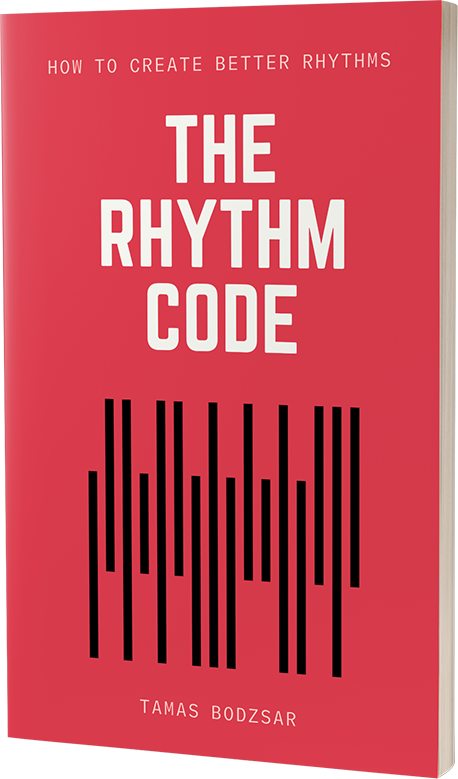
A very old dilemma is whether we should write more popular songs that the audience likes or write songs that we like. I have been there, and I’ve seen the struggle of many bands and musicians. I think there are many misconceptions about this, so let me tell you my opinion.
It’s not black or white
Writing songs is not black or white. It’s not like if you write songs that will be loved by your audience you will definitely hate it. Sure, most people are clueless about music, so it’s obvious that there will always be differences in taste. Especially if you are a highly qualified musician. The more sophisticated your music taste, the greater the difference.
But there is surely a common ground. And if you are really a pro songwriter, you should be able to write songs that you will be happy with and the audience will also love. What’s the worst thing that can happen? If you write songs that are too corny, then probably the audience won’t like it either. And if they do, you make some money on it.
Are there different goals?
I read a lot of articles in which they said something like “there’s nothing wrong with writing songs for only yourself”. I disagree. I think it’s bullshit. Nobody wants to write songs only for themselves. If someone tells me he only wants to write songs for himself, I don’t believe it. He is lying to me, and he is lying to himself. This is a really good excuse if someone doesn’t want to accept his weaknesses and doesn’t want to improve.
If he doesn’t have the motivation to improve, that’s fine. It’s completely natural if someone is not really good at songwriting and doesn’t want to publish his songs. There are millions of songs published every single year, and 99% of those songs are complete garbage. So we really don’t need more songs. But I still don’t believe that anyone would want to write songs only for themselves.
What’s the point if nobody listens
What’s the channel of communication? It’s a tricky question. Most people would say things like email or phone or internet. What if we speak in person? Is it air? What if we are underwater and we can only communicate through sign language? Here is the answer: it’s attention. The channel of communication is attention.
Many people agree that music is a form of communication. It’s kind of a language. But communication only makes sense if someone’s listening. There is no communication if nobody listens. So what’s the point in making songs that nobody listens to? This is why I believe that we need to find a common ground. In order to communicate, we need to write songs that we are happy with AND that will be loved by the audience too.
Find your own balance
Where this common ground lies, there’s no strict rule for that. It comes down to testing and learning what works and improve your songwriting skills. How many proven songwriting tools you use is completely up to you. It’s not like learning all of them will make you use all of them all the time. And keep in mind that in order to deviate from the “rules”, you have to first learn them. (Although there are no rules in songwriting, only guidelines.) Learning songwriting tools shouldn’t make you less creative and less unique.
Learn what already works
A very common misconception is that if you use proven songwriting tools, your music will be corny and of bad quality. Most of the time, this comes from people who don’t know too much about music theory or songwriting. So it’s more like they don’t know any songwriting tool, and they are not open to learning any songwriting tools. They don’t know what they don’t know. So most of the time, this is just an excuse because they can’t admit that they would need to improve their songwriting skills.
And the truth is, you don’t have to write bad songs just because you learn what already has worked for successful songwriters. In fact, you will more likely write better songs. Just think about it. I assume you already know a few things about music theory. Like chords, and scales. Did learning these things make you a worse musician? Or did they make you a better one? I think it’s not a question.
Know your audience
It’s one thing to have something in our minds and it can be a whole lot different from what happens in real life. I have learned this from my own experiences. And by the way, this is not only true for music, but for any product. Companies make products and sometimes the audience gives feedback on what they don’t like about it. If the management of the company is smart, they know that they need to change the product in a way that will meet the audience’s expectations.
When I published my first album, it was full of experimental songs. I got a message from a music expert and he said he has never heard so innovative songs in this genre. And I got the best feedback from musicians, they loved my songs. The problem was, people in the audience are not musicians. Some of the songs were a huge success, but the most experimental ones were not. So I knew I had to change. My second album was much less experimental because I knew that this style of music is not for musicians. I still made high-quality songs and arrangements, but it was just easier to understand the music for the audience. And of course, in the meantime, I analyzed hundreds of successful songs and learned a lot of great songwriting tools from those songs.
The secret pattern behind successful songs
Get the eBook for $4.99

